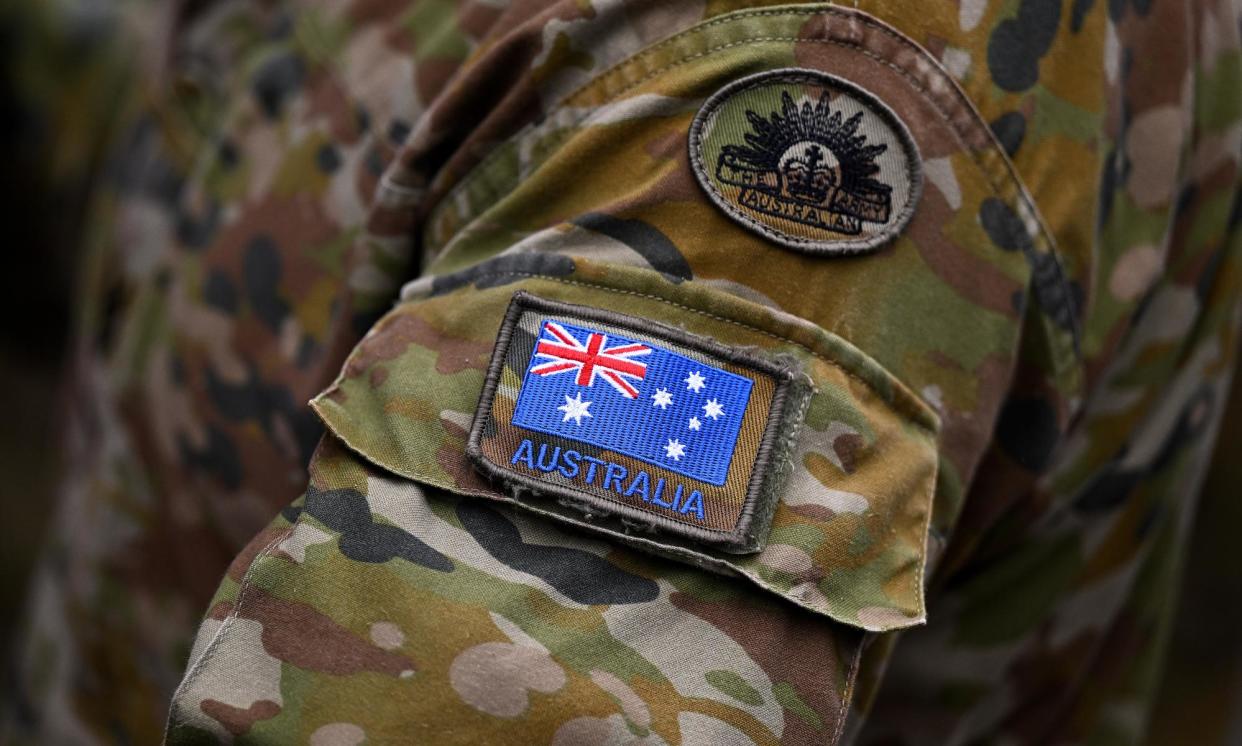Defence probed 16 alleged links between personnel and extremism in two years

There have been at least 16 investigations into defence personnel allegedly engaging with extremism or supremacism in the last two years, documents obtained by Guardian Australia reveal.
Of the cases, which span February 2022 to April 2024, nine are still “pending” while two are open. Sixteen concerned army personnel in various units and two in the navy.
The matters are part of Operation Lumen, which began in 2020 and is an ongoing investigation into alleged links between Australian Defence Force (ADF) personnel and extremist or supremacist groups or ideologies.
The outcomes of the closed investigations and two incidents are not listed in the records – which were released under freedom of information laws – but at least two ended due to insufficient evidence that the “member took part in [nationalist and racist violent extremist] groups or associates”.
“There is no place within defence for behaviour or associations that are inconsistent with defence values,” a defence spokesperson said.
“This includes inappropriate association with groups that engage in advocacy for extremist ideology, extremist views, or criminal activity. All defence personnel have an obligation to report contact with these groups.”
Earlier this year, ASIO’s director general, Mike Burgess, said he was concerned about ‘accelerationists’ – “extremists who want to trigger a so-called ‘race war’.”
“The threat from nationalist and racist violent extremism persists,” he said in annual threat assessment. “We assess white nationalist groups are primarily focussed on recruitment and radicalisation.”
In October 2021, the ADF tightened its vetting procedures in an attempt to prevent nationalist and racist violent extremists from joining amid concerns about former ADF personnel who were linked to local white supremacist groups.
In 2021, Asio warned in its annual report that “some nationalist and racist violent extremists seek to join the Australian defence force to obtain training and capability.” A new framework was developed that same year to share information about potential extremist links.
If unacceptable behaviour is established, defence personnel can face consequences ranging from counselling to dismissal. They may also be referred to the Australian federal police and national security agencies.
“Defence works closely with law enforcement and intelligence agencies to identify and counter threats to defence and defence personnel involving ideologically motivated extremism,” a spokesperson said.
Ben Wadham, a professor of defence and veteran studies at the Open Door project, Flinders University, said there were two broad risks for the ADF: members of extremist groups who join the ADF to gain military skills and those who join without an allegiance but for whom the military environment “foments or galvanises their beliefs”.
Related: Rise in activity from rightwing extremists who want to trigger ‘race war’ in Australia, Asio warns
The Senate’s legal and constitutional affairs references committee began an inquiry into rightwing extremist movements in Australia in December.
In its submission, Asio said ideologically motivated violent extremism, including nationalist and racist violent extremism, accounted for 25% of its priority counter-terrorism caseload.
Do you know more? Contact abogle@protonmail.com


